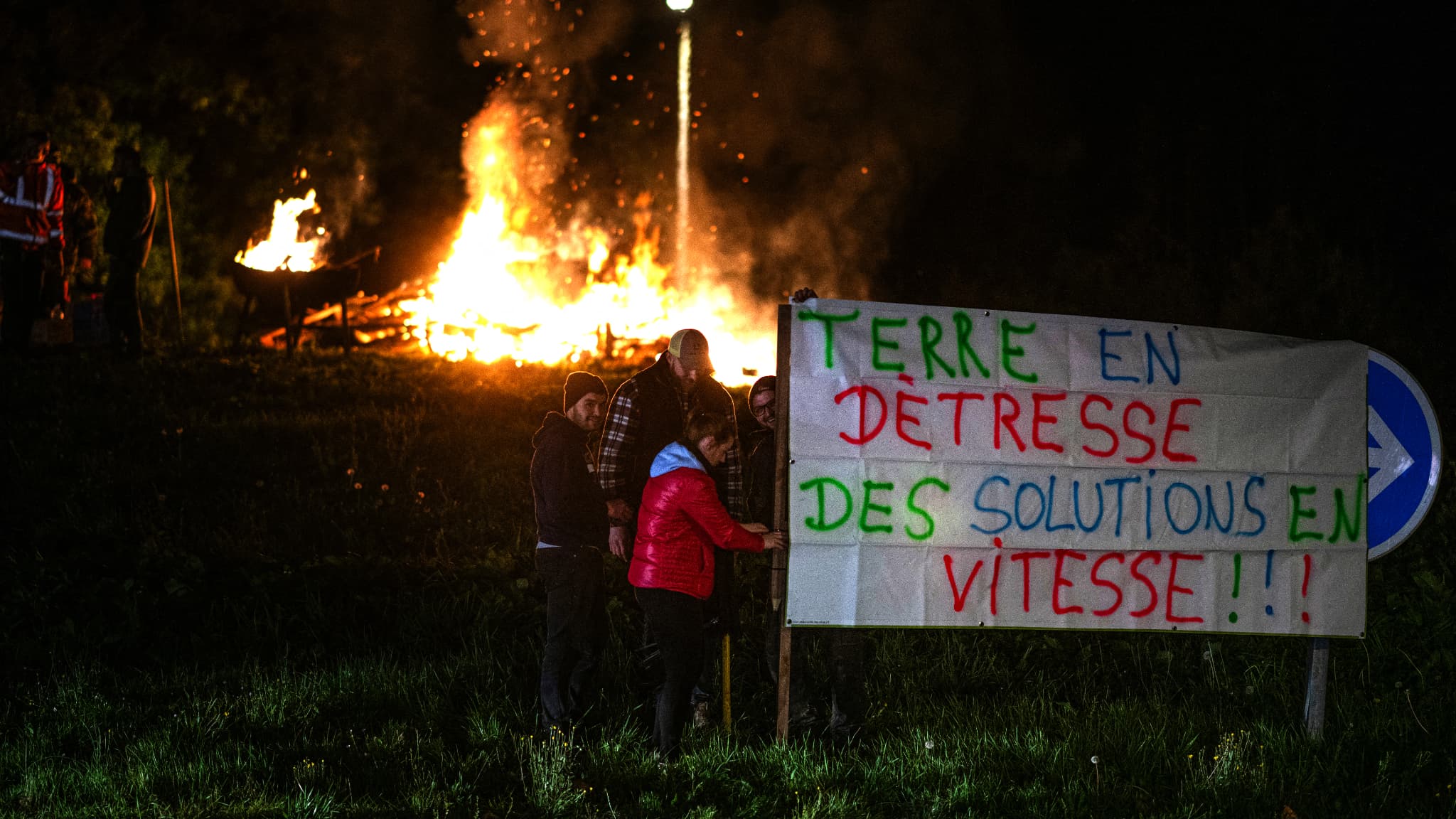While the president of the Gers Rural Coordination had promised in October to “paralyze and starve Toulouse” in the event of no response from the government to the demands of farmers, Véronique Le Floc’h confirmed this Tuesday, November 19 on BFMTV that “if It lasts, it could happen.”
This Tuesday, November 19, farmers continue their mobilization throughout France at the call of unions, with the Rural Coordination now increasing the pressure speaking of “blocking food freight”. “We must say stop to this agricide,” says Véronique Le Floc’h, president of this agricultural union, on BFMTV.
While the president of the Gers Rural Coordination had promised in October to “paralyze and starve Toulouse” in the event of no response from the government to the farmers’ demands, Véronique Le Floc’h confirmed this Tuesday that “if it lasts, it could happen”.
“Our actions are getting tougher because it is a question of survival, because, precisely, we want a future for our young people,” she adds.
Lower charges and opposition to Mercosur
The second agricultural union, the Rural Coordination, is holding its annual congress until Wednesday in Vienne. The union assures that it is ready, if it does not obtain satisfaction, to “block food freight” from November 20, first in the south-west of France.
Opposed, like other agricultural unions, to the signing by the European Union of a free trade agreement with Mercosur countries (Brazil, Argentina, Uruguay, Paraguay), it also demands reductions in charges for farmers.
“Who are we targeting? Today, all those who make a living through agriculture,” assures Véronique Le Floc’h on BFMTV.
Less than a year after a historic mobilization, agricultural unions believe that the accounts are not there and are protesting against the signing of an agreement with Mercosur which notably provides for beef import quotas with customs duties. reduced or zero.
A year later, nothing has changed? Farmers make their anger heard again
“Our targets are not just the purchasing centers, we also have manufacturers, who today are not controlled, who export our good cheap raw materials, who import expensive raw materials, who make tax evasion…”, declared Véronique Le Floc’h this Tuesday.
The Rural Coordination also intends to break the quasi-hegemony of the FNSEA over the chambers of agriculture and is increasing its attacks on Arnaud Rousseau, also president of the oil giant Avril. The CR accuses him of secretly defending the interests of agro-industry. Faced with the threat of blocking food freight, FNSEA officials have already retorted that they are not trying to “starve” the French.
What strategies do you believe would be most effective in bridging the gap between the government and the various agricultural unions moving forward?
As the editor of world-today-news.com, I would like to invite you to an interview with Véronique Le Floc’h, the president of the Rural Coordination Union, and another representative from the French agricultural sector to discuss the ongoing tensions and issues highlighted in the article about the potential blockage of food freight and its implications for the country’s farmers.
The first section of the interview will focus on the potential blockage of food freight and its impact on the French population. Here are some possible questions to ask:
1. Ms. Le Floc’h, you mentioned that the blockage of food freight is a question of survival for the agricultural sector. Could you please explain how this decision was made and what are the possible consequences for the public if it were to take place?
2. How will the public react to such a decision, especially given the current economic situation in the country?
3. We understand that the government is opposed to this action, and some official representatives have claimed that this will not lead to starvation. How do you respond to these statements?
4. Do you believe that these measures are justified, given the current situation, or are there other ways to draw attention to your demands?
The second section of the interview will focus on the opposition to the European Union’s free trade agreement with Mercosur countries and the request for lower charges for farmers. Here are some possible questions:
1. Can you explain the concerns of the agricultural sector regarding the free trade agreement with Mercosur countries?
2. How do you believe the Mercosur deal will affect the livelihoods of French farmers?
3. What are the specific charges that the Rural Coordination Union is requesting to be reduced or eliminated?
4. In your opinion, are the charges unfair, or is there a need for further review?
The final section of the interview will discuss the ongoing tensions between different agricultural unions and the government. Here are some possible questions:
1. How have things changed since last year’s historic mobilization of farmers? Has there been any progress in addressing their demands?
2. The FNSEA has claimed that they are not trying to starve the French population. How do you respond to


